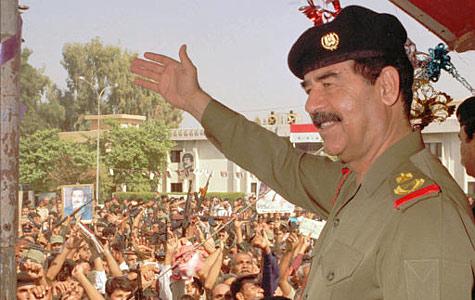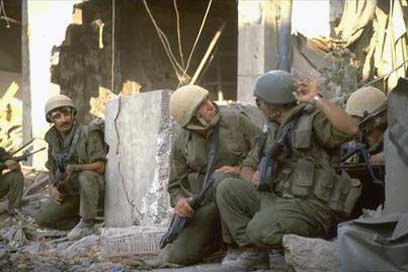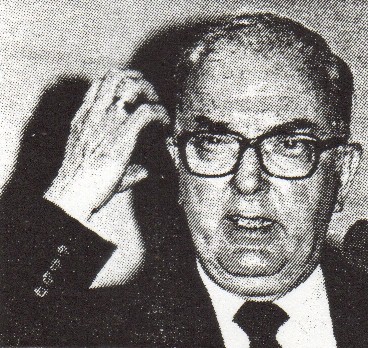8 - Part 8: A step rightward
TransUral Empire
Mess with the bull, you get the horse
- Location
- The Isle of Pen
Been working and editing the TL more. This post and the next are focused on the Democratic Party and the 1984 Presidential election.
As per usual, everything that follows is from the TL posted on the other site.
Part 8: A step rightward
Coming into the 1984, there was only a few figures within the Democratic Party seeking the nomination. Even less than that were seeking the nomination seriously.
Reagan, despite his flaws, had managed to slash taxes and also acquire trade deals with Middle Eastern allies to at least partially negate the high prices of oil. While they economy was still plodding along without any major improvement, it lacked any major decline. So, when you factored in his being an incumbent into the equation it was unlikely that anyone the Democrats nominated had a chance of dethroning Reagan. Much of the Party held their breath for 1988 when Reagan's lackluster VP Hammond would likely be their opponent. Then surely it would be their time.
As far as serious candidates, there was just 3. If you considered those that flirted with the idea and the minor draft Bayh movement, there was in total 5 candidates running for the nomination that had any real level of support. No one was really expecting anything too exciting.
The first serious candidate was Bill Proxmire, long time Senator from Wisconsin. He was a more Centrist candidate and his campaign was more focused on reform to the government than the other candidates. He criticized Reagan's tax cuts and increase in spending as hypocritical and claimed that the debt was a very important thing to consider. In general he promoted "cutting out the fat" where the unneeded things in government would be defunded and funds were to go to deserving things. This would allow the government to cut taxes, and also spending, thus benefiting the citizens. Proxmire was also strongly focused on reaching out to the old Republicans who were still around and the Reagan Democrats as he honestly believed that the "cut the fat" program would bring both groups to his camp. His main opponent in the primaries was John Glenn.
John Glenn was Bayh's former VP. He had gotten a name for himself as Vice President as a strident Liberal who brooked no opposition. Glenn was firmly set on a firm socially and economically Liberal platform and opposed cutting taxes like Proxmire, he did however promote the same kind of reformism as Proxmire as a part of his "New American Compact" platform of which it made up a part of a nexus of issues. The New American Compact was a strongly Liberal document, promoting that same reformism, but also worker's rights, minority rights, pro-choice legislation and funding, a jobs program, and also a major funding push in green technology to lessen American dependency on oil. Glenn got a reputation for firm liberalism and he wasn't interested in going against his reputation now.

John Glenn giving a speech in Iowa, 1983: "What we need now more than ever is progress. If we want to reach the stars we first need to aim for the skies."
The third and final was Joe Biden who was a Senator from Delaware. Biden formed his own niche in the race as the middle between Proxmire and Glenn. Though this was often self-defeating rather than a benefit for the Biden campaign. Biden's domestic policy was muddled by this both-sideism. He was in favor of the same things that are mentioned in the New American Compact but "not as far" as Glenn and Bayh on these issues. But he was also fine with the tax cut and said that it was a way forward, yet at the same time he opposed Proxmire's reformism as he said that the government spending was already whittled down to the bone. The one thing he was totally clear with was his opinion that the idealism of the past needed to be restored. He believed that the cynicism and anger unleashed by Watergate needed to be mitigated so that faith could be restored in American democracy so that it could be an example for all. He polled a distant third and dropped out early in the primaries due to a lack of success, leaving Glenn and Proxmire to duel it out by themselves.
The question then of course was which section of the party would succeed? The moderate reformists or the firm liberals?
Glenn's campaign suffered largely from an aggressiveness that he became personally known for which clashed with the sort of feel-good liberalism that he promoted in his platform. That wasn't all though, when he managed to be a jovial and gentle fellow he came off as simply insincere. To more than a few people his New American Compact was not the New Deal that he wanted it to be, but it came off as a bad car salesman-sque sales strategy. He promised major changes but even if they were possible with the makeup of the Congress, more than a few of them were out of step with the average electorate. The time for that sort of liberalism was gone come '84.
Bill Proxmire on the other hand just seemed to have everything together. He promoted popular policies with the electorate and preferred a step to the right rather than staying on with die hard liberalism, hence his support for the tax cut. Proxmire promoted the idea that the reason that social programs were being gutted was not the lack of government income or overspending in the military, but rather that there was an incredible amount of government waste and if it was minimized the funds could then be utilized correctly. In some ways this was right, the US government had and still has a remarkable amount of wasted funds and if these wasted monies were spent on social programs it would make an amazing difference. But minorities and die hard liberals didn't buy the message, no matter how many times Proxmire insisted that it was self-evident after Watergate that government corruption was endemic. How much of this theory Proxmire bought hook and sinker is debatable. But his rhetoric shored up a surprisingly large amount of support among ex-GOP and new Conservatives who were still registered with the Democrats.
Proxmire's step to the right won out over Glenn in the end. The convention in Dayton Ohio was subdued affair. Proxmire's supporters were happy for his win but the convention did not have the hype that many thought it was going have, the die hard liberals were silent. They were not particularly enthused by Proxmire's win. Nor his firm Centrist platform. And even less by his running-mate.

Senator William Proxmire: "What we need now, more than ever, is the enshrinement of a new culture of responsibility."
Proxmire's running-mate was coordinated specifically to appeal to the ex-GOP. It seemed the Proxmire's faction was under the impression that they could make a wide coalition similar to Reagan. Stretching from the Democrat's Left to the ex-GOP as well as winning back the Reagan Democrats. Proxmire's choice was Liberal Republican Senator from Vermont, Robert Stafford. Upon hearing the news the die hards were sick. They had been totally beaten by the centrists.
There was chatter in the backrooms of a quickly assembled Independent run. But who? Bayh was firm in his being done with politics. Glenn? When approached Glenn threatened to let Proxmire know about what they were doing. So those who still believed in a independent run approached the Hardliners in congress. They weren't very interested. They had legislative duties to take care of.
The hope of an independent in '84 died in the womb.
Where the hell did the liberals go? Is it really the end of liberalism like all those articles and news reports on TV said? Regardless if that was the case or not in reality, that's what the Proxmire camp emphatically believed. They had made their step right, now they were going to get their chance to win back the White House.
For the liberals, they started to really believe that it was the end. Was the party changing forever?
------
Sorry for taking a while on this one folks, I had stuff to do and didn't feel particularly in the mood to do editing.
Next time, more election talk and more Joe Biden.
As per usual, everything that follows is from the TL posted on the other site.
Part 8: A step rightward
Coming into the 1984, there was only a few figures within the Democratic Party seeking the nomination. Even less than that were seeking the nomination seriously.
Reagan, despite his flaws, had managed to slash taxes and also acquire trade deals with Middle Eastern allies to at least partially negate the high prices of oil. While they economy was still plodding along without any major improvement, it lacked any major decline. So, when you factored in his being an incumbent into the equation it was unlikely that anyone the Democrats nominated had a chance of dethroning Reagan. Much of the Party held their breath for 1988 when Reagan's lackluster VP Hammond would likely be their opponent. Then surely it would be their time.
As far as serious candidates, there was just 3. If you considered those that flirted with the idea and the minor draft Bayh movement, there was in total 5 candidates running for the nomination that had any real level of support. No one was really expecting anything too exciting.
The first serious candidate was Bill Proxmire, long time Senator from Wisconsin. He was a more Centrist candidate and his campaign was more focused on reform to the government than the other candidates. He criticized Reagan's tax cuts and increase in spending as hypocritical and claimed that the debt was a very important thing to consider. In general he promoted "cutting out the fat" where the unneeded things in government would be defunded and funds were to go to deserving things. This would allow the government to cut taxes, and also spending, thus benefiting the citizens. Proxmire was also strongly focused on reaching out to the old Republicans who were still around and the Reagan Democrats as he honestly believed that the "cut the fat" program would bring both groups to his camp. His main opponent in the primaries was John Glenn.
John Glenn was Bayh's former VP. He had gotten a name for himself as Vice President as a strident Liberal who brooked no opposition. Glenn was firmly set on a firm socially and economically Liberal platform and opposed cutting taxes like Proxmire, he did however promote the same kind of reformism as Proxmire as a part of his "New American Compact" platform of which it made up a part of a nexus of issues. The New American Compact was a strongly Liberal document, promoting that same reformism, but also worker's rights, minority rights, pro-choice legislation and funding, a jobs program, and also a major funding push in green technology to lessen American dependency on oil. Glenn got a reputation for firm liberalism and he wasn't interested in going against his reputation now.

John Glenn giving a speech in Iowa, 1983: "What we need now more than ever is progress. If we want to reach the stars we first need to aim for the skies."
The third and final was Joe Biden who was a Senator from Delaware. Biden formed his own niche in the race as the middle between Proxmire and Glenn. Though this was often self-defeating rather than a benefit for the Biden campaign. Biden's domestic policy was muddled by this both-sideism. He was in favor of the same things that are mentioned in the New American Compact but "not as far" as Glenn and Bayh on these issues. But he was also fine with the tax cut and said that it was a way forward, yet at the same time he opposed Proxmire's reformism as he said that the government spending was already whittled down to the bone. The one thing he was totally clear with was his opinion that the idealism of the past needed to be restored. He believed that the cynicism and anger unleashed by Watergate needed to be mitigated so that faith could be restored in American democracy so that it could be an example for all. He polled a distant third and dropped out early in the primaries due to a lack of success, leaving Glenn and Proxmire to duel it out by themselves.
The question then of course was which section of the party would succeed? The moderate reformists or the firm liberals?
Glenn's campaign suffered largely from an aggressiveness that he became personally known for which clashed with the sort of feel-good liberalism that he promoted in his platform. That wasn't all though, when he managed to be a jovial and gentle fellow he came off as simply insincere. To more than a few people his New American Compact was not the New Deal that he wanted it to be, but it came off as a bad car salesman-sque sales strategy. He promised major changes but even if they were possible with the makeup of the Congress, more than a few of them were out of step with the average electorate. The time for that sort of liberalism was gone come '84.
Bill Proxmire on the other hand just seemed to have everything together. He promoted popular policies with the electorate and preferred a step to the right rather than staying on with die hard liberalism, hence his support for the tax cut. Proxmire promoted the idea that the reason that social programs were being gutted was not the lack of government income or overspending in the military, but rather that there was an incredible amount of government waste and if it was minimized the funds could then be utilized correctly. In some ways this was right, the US government had and still has a remarkable amount of wasted funds and if these wasted monies were spent on social programs it would make an amazing difference. But minorities and die hard liberals didn't buy the message, no matter how many times Proxmire insisted that it was self-evident after Watergate that government corruption was endemic. How much of this theory Proxmire bought hook and sinker is debatable. But his rhetoric shored up a surprisingly large amount of support among ex-GOP and new Conservatives who were still registered with the Democrats.
Proxmire's step to the right won out over Glenn in the end. The convention in Dayton Ohio was subdued affair. Proxmire's supporters were happy for his win but the convention did not have the hype that many thought it was going have, the die hard liberals were silent. They were not particularly enthused by Proxmire's win. Nor his firm Centrist platform. And even less by his running-mate.

Senator William Proxmire: "What we need now, more than ever, is the enshrinement of a new culture of responsibility."
Proxmire's running-mate was coordinated specifically to appeal to the ex-GOP. It seemed the Proxmire's faction was under the impression that they could make a wide coalition similar to Reagan. Stretching from the Democrat's Left to the ex-GOP as well as winning back the Reagan Democrats. Proxmire's choice was Liberal Republican Senator from Vermont, Robert Stafford. Upon hearing the news the die hards were sick. They had been totally beaten by the centrists.
There was chatter in the backrooms of a quickly assembled Independent run. But who? Bayh was firm in his being done with politics. Glenn? When approached Glenn threatened to let Proxmire know about what they were doing. So those who still believed in a independent run approached the Hardliners in congress. They weren't very interested. They had legislative duties to take care of.
The hope of an independent in '84 died in the womb.
Where the hell did the liberals go? Is it really the end of liberalism like all those articles and news reports on TV said? Regardless if that was the case or not in reality, that's what the Proxmire camp emphatically believed. They had made their step right, now they were going to get their chance to win back the White House.
For the liberals, they started to really believe that it was the end. Was the party changing forever?
------
Sorry for taking a while on this one folks, I had stuff to do and didn't feel particularly in the mood to do editing.
Next time, more election talk and more Joe Biden.
Last edited:



















